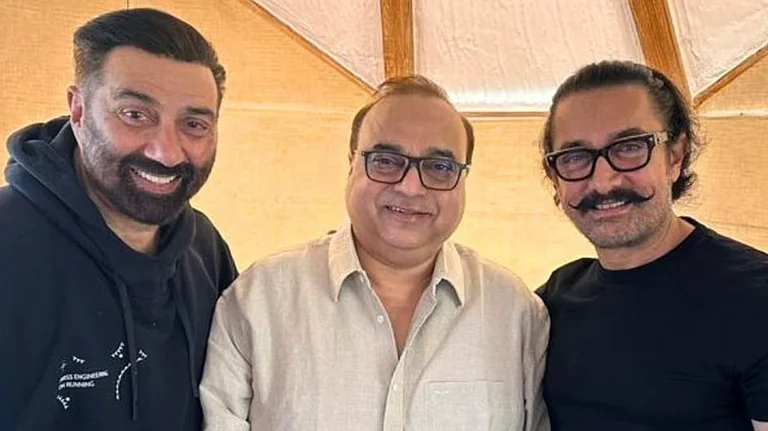I have thought long and hard about l’affaire Kazmi. Syed Mohammed Ahmed Kazmi, a pib-accredited Urdu journalist demonised as the Indian ‘facilitator’ of the February 13 bomb attack on an Israeli embassy car by three suspected Iranians, is rotting in Tihar Jail. His arrest under the Unlawful Activities (Prevention) Act conveniently gives investigators 180 days to file charges instead of the standard 90—a provision Delhi Police is exploiting to the hilt, because the trumped-up case has no legs to stand on.
Contempt of court is a serious offence in India. But contempt for police is so well-justified in Indian conditions that I have no qualms declaring Kazmi sahab innocent. I disbelieve the Special Cell’s version that Iranians paid Kazmi to help mount a terrorist attack in the capital. I refuse to buy Delhi police commissioner B.K. Gupta’s assertion of Kazmi’s complicity at a press conference, or the brazen leaks to justify the detention of a man who is not on the wrong side of the law.
Forget assisting an Iranian or any other foreign agency. By my reckoning, Kazmi would likely refuse to help even if Indian intelligence invoked his sense of patriotism for help! He would think of his safety and reputation and politely say no.
I say this with great conviction as I can read Kazmi’s mind. He and I are contemporaries from the same socio-religious background. I may have had a more privileged upbringing, particularly English-medium education in Jesuit institutions, which ensured jobs in the national press, while he rose from the ranks to excel in Urdu and Farsi journalism. We have never met; I wasn’t aware of his existence until his arrest. But I ran a quick background check for this piece—and realised we have so much in common that in various situations he will invariably act and react like me. His value system—and survival instincts—are like mine.
While working for South China Morning Post in Delhi in 2000-2001, I was a regular at the Shahe Mardan Shia Imambara in Jorbagh. My close friend, Raghu Nath Behura, a 1979 batch ips officer, was then DD (Pakistan) in the Intelligence Bureau. One day, he showed me a bunch of photographs shot inside the imambara. Spy cameras had caught me sitting on the floor along with 2-3 gentlemen whom I didn’t know. Behura said they were Shia officials of the Pakistani high commission who frequented the imambara and requested me to cultivate them in the national interest.
“We won’t ask you to steal papers or plant a device,” Behura assured me. “Get pally with them. Occasionally we might tell you to mention something while talking to them and report back their reaction. That’s it.” I asked Behura what would happen if the Pakistanis discovered my IB links. Won’t the ISI break my legs in Islamabad or Karachi if professional duties took me to Pakistan, or thrash me in Birmingham or Bradford? Behura replied: “Pakistan hasn’t infiltrated the IB and will never find out. So you needn’t fear for your safety.” Almost as an after-thought, he added: “But God save you if you decide to spy on Americans for us. There will be a race among IB officials to give your game away!”
Anyway, I declined. It’s too dangerous and certainly not my cup of tea, I told my Oriya friend, who understood. Behura and I were inseparable—his wife Ipsita will bear me out—until the secret warrior’s untimely death in Guwahati last month, where he was posted as additional director.
In 2006, I joined the Khaleej Times in Dubai. The RAW man in our consulate told me that he and his superiors would really appreciate if I befriended certain Pakistanis in Dubai for India’s sake. I wriggled out by declaring that I was interested only in beautiful Pakistani women—not the men! He turned out to be a very sweet man but I couldn’t overcome my mental block.
The crux of my argument is that a journalist like me or Kazmi, who develops cold feet when IB or raw—our own spy agencies—make friendly overtures, is unlikely to be ever on the payroll of a foreign power or engage in subversive activities like bombing cars with or without diplomatic numberplates.
If the police don’t own up their mistake and release Kazmi, he is bound to be acquitted by the court. Our judiciary may appear to be pliant and submissive before the executive, but never doubt judges’ capacity to assert themselves when push comes to shove. There will be egg on commissioner Gupta’s face when Kazmi gets a clean chit. In fact, there will be so much of it that Gupta could whip up the biggest omlette in the history of Delhi Police and invite the entire force for breakfast.
(Abdi won a UN award for his Bhagalpur blindings story.)


























